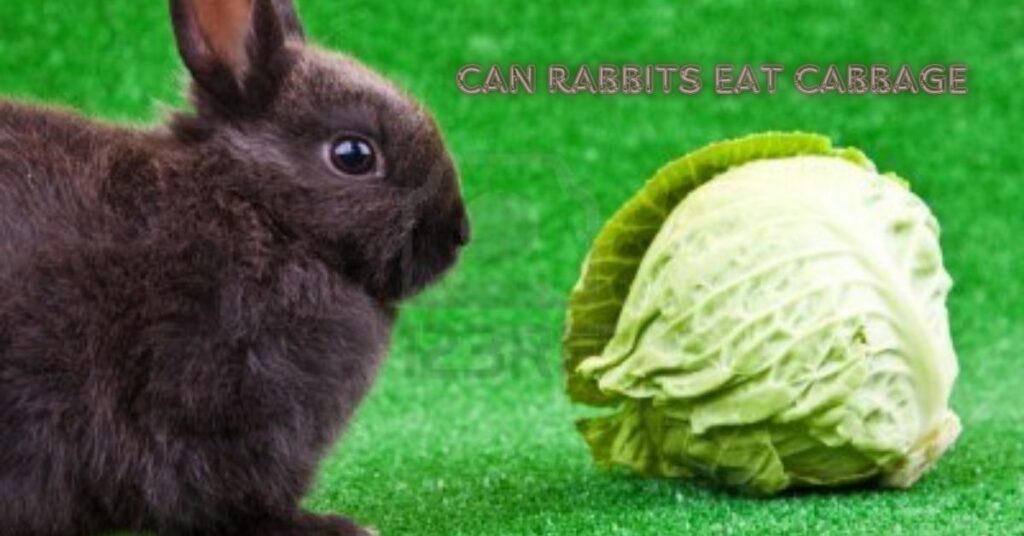Introduction to feeding rabbits
Are you a proud bunny parent looking to provide the best nutrition for your furry friend? As rabbit owners, we know that ensuring our rabbits have a balanced and healthy diet is crucial for their well-being. Today, we delve into the question: can rabbits eat cabbage? Join us as we explore the nutritional insights behind this leafy vegetable and discover other safe options to keep your bunnies hopping with joy!
The importance of a balanced diet for rabbits
Rabbits, like any other living creatures, require a balanced diet to thrive and stay healthy. A well-rounded nutrition plan is crucial for ensuring your bunny’s overall well-being. It helps in maintaining their weight, promoting good digestion, and boosting their immune system.
Feeding your rabbit a variety of fresh hay, vegetables, and pellets provides them with essential nutrients such as fiber, vitamins, and minerals. Hay should make up the majority of their diet as it aids in wearing down their teeth – which continuously grow.
Vegetables like leafy greens should be given daily in small amounts while fruits can be offered as occasional treats. Pellets formulated specifically for rabbits help supplement their diet but shouldn’t be the primary source of nutrition.
By offering a diverse range of foods in moderation, you can ensure that your bunny receives all the necessary nutrients to lead a happy and healthy life.
Can rabbits eat cabbage?
When it comes to feeding your fluffy companion, ensuring they have a well-balanced diet is crucial for their health and happiness. So, the question arises: Can rabbits eat cabbage? Well, the good news is that yes, rabbits can enjoy cabbage as part of their diet. However, moderation is key when offering this leafy green vegetable to your bunny friend.
Cabbage can be a nutritious addition to your rabbit’s menu as it contains essential vitamins and minerals like Vitamin C and K. These nutrients can support your rabbit’s immune system and overall wellbeing. Despite its benefits, it’s important not to overdo it with cabbage due to its potential for causing gas or digestive issues in some bunnies.
Introducing new foods slowly into your rabbit’s diet is always recommended. Start by giving small amounts of cabbage to see how your bunny reacts. It’s also wise to offer a variety of vegetables and greens alongside cabbage to provide a diverse range of nutrients for your furry friend.
Remember, caring for your rabbit’s nutrition plays a significant role in keeping them healthy and happy!
Nutritional benefits and risks of feeding cabbage to rabbits
When it comes to feeding cabbage to your rabbit, there are both nutritional benefits and potential risks to consider. Cabbage is a good source of vitamins K and C, as well as fiber which can aid in digestion for your bunny. However, cabbage also contains compounds that can cause gas and bloating in rabbits if fed excessively.
It’s important to remember that moderation is key when incorporating cabbage into your rabbit’s diet. Too much cabbage can lead to digestive issues like diarrhea or upset stomachs. To prevent any adverse effects, be sure to introduce cabbage gradually into your rabbit’s meals.
To ensure a balanced diet for your furry friend, it’s best to offer a variety of vegetables and greens along with hay and pellets. This will provide the necessary nutrients for their overall health and well-being while keeping their diet interesting.
Always consult with a veterinarian before making significant changes to your rabbit’s diet or introducing new foods like cabbage. Your vet can provide guidance on portion sizes and how often you should include cabbage in their meals.
Other vegetables and greens that are safe for rabbits to eat
When it comes to expanding your rabbit’s diet beyond cabbage, there are plenty of safe vegetables and greens you can offer. Leafy greens like romaine lettuce, arugula, and cilantro are excellent choices packed with essential nutrients. Bell peppers provide a crunchy snack rich in Vitamin C that rabbits enjoy munching on.
Carrots are a well-loved treat for bunnies, but remember they should be given in moderation due to their sugar content. Broccoli florets and kale can also be added to your rabbit’s menu for variety and additional vitamins.
For a touch of sweetness, try offering small amounts of fruits like apples or berries as occasional treats. Just ensure the fruits are fresh and washed thoroughly before serving them to your furry friend.
Remember, always introduce new foods gradually to avoid upsetting your rabbit’s delicate digestive system. Provide a mix of different vegetables and greens to keep their diet balanced and interesting.
How to properly introduce new foods to your rabbit’s diet
When introducing new foods to your rabbit’s diet, it’s essential to do so gradually. Rabbits have sensitive digestive systems that can easily be upset by sudden changes in their diet. Start by offering small amounts of the new food and observe how your bunny reacts.
Introduce one new vegetable at a time and wait a few days before adding another. This way, you can monitor if there are any adverse reactions or changes in your rabbit’s health. Keep track of what you’re feeding them to ensure they’re getting a balanced diet.
Remember that not all vegetables are safe for rabbits, so always research beforehand. Fresh hay should still make up the majority of their diet, with vegetables being more of a supplement.
By taking these steps slowly and methodically, you’ll help prevent any tummy troubles for your furry friend while broadening their menu options.
Tips for maintaining a healthy diet for your bunny
When it comes to maintaining a healthy diet for your bunny, variety is key. Make sure to offer a diverse selection of vegetables and greens to ensure your rabbit gets all the necessary nutrients. Rotate their food options regularly to keep things interesting!
Monitor your rabbit’s weight and adjust their portions accordingly. Obesity can lead to health issues, so keeping an eye on their size is essential. Consult with a vet if you’re unsure about how much or what type of food to feed your furry friend.
Always provide fresh water for your rabbit. Hydration is crucial for digestion and overall well-being. Ensure that their water bowl or bottle is clean and filled daily.
Avoid giving too many treats as they can upset the balance of your rabbit’s diet. Stick mainly to hay, pellets, vegetables, and occasionally fruits as special snacks.
By following these tips and staying attentive to your bunny’s dietary needs, you can help them live a happy and healthy life!
Conclusion: Caring for your rabbit’s nutrition is essential for their overall health and well-being
Ensuring that your rabbit has a well-rounded diet is crucial in maintaining their health and happiness. As we’ve explored, cabbage can be a nutritious addition to your bunny’s meals when given in moderation. However, always remember that variety is key when it comes to feeding rabbits.
Incorporating a range of safe vegetables and greens into their diet will not only provide essential nutrients but also keep mealtime interesting for your furry friend. Remember to introduce new foods gradually and monitor how your rabbit responds to them.
By being mindful of what you feed your rabbit and prioritizing their nutritional needs, you are laying the foundation for a healthy and vibrant life for your beloved pet. So, let’s continue caring for our rabbits by providing them with balanced diets tailored to meet their specific dietary requirements. Your bunny will thank you with binkies and happy hops!
FAQs
Is cabbage safe for rabbits to eat?
Yes, rabbits can eat cabbage in moderation. It provides vitamins and fiber, but excessive consumption may cause digestive issues.
What nutrients does cabbage provide for rabbits?
Cabbage is rich in vitamins C and K, as well as fiber, which can support a rabbit’s digestive health and overall well-being.
How should cabbage be prepared for rabbits?
Wash cabbage thoroughly and feed it in small, chopped portions to prevent choking. Introduce it gradually into their diet.
Are there risks associated with feeding cabbage to rabbits?
Overfeeding cabbage can lead to gas, bloating, or diarrhea in rabbits. Rotate cabbage with other vegetables to maintain a balanced diet.
Can rabbits eat all types of cabbage?
Yes, rabbits can eat green cabbage, red cabbage, and other varieties. Avoid feeding them cooked or fermented cabbage, which can be harmful.







